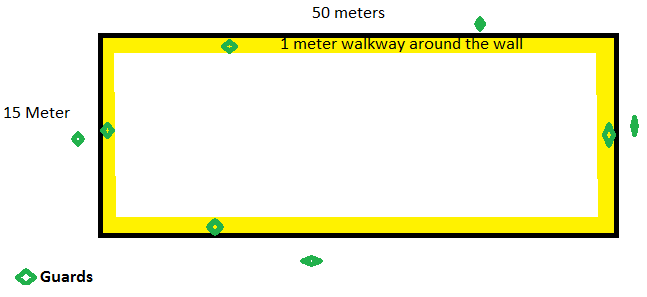As the title says: How can a warehouse be secured to the point of highest possible security within a 16th century setting?
The warehouse is located at a harbor and roughly 50 meters in length and 15 in width. It's owned by a really wealthy merchant and stores pretty much anything but weapons. There are other warehouses next to it, but the security of these don't matter for this question, as they are owned by other people. There are roughly three meters between two warehouse.
The warehouse has ten guards as of now, who are personally chosen and paid by the owner. There is also some kind of harbor watch patrolling the harbor in general. These two groups are unrelated with each other, but cooperate, if needed. All of them are forbidden to kill intruders or to hurt them more than needed to arrest them.
You can build whatever you like into the warehouse in order to tighten the security, but most of the space should be used for goods, as it is a warehouse after all.
Given these circumstances, how can it be further secured to an extent, where it becomes basically impossible to successfully break in and escape?
Just to make sure: This question is about thiefs, not about organized assaults by masses of armed fighters.

